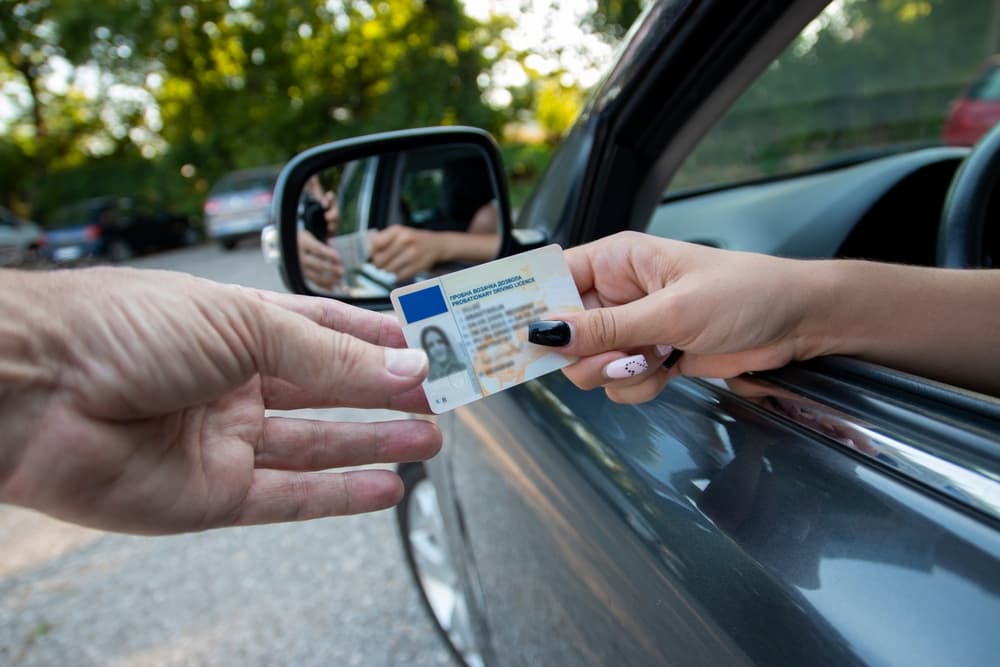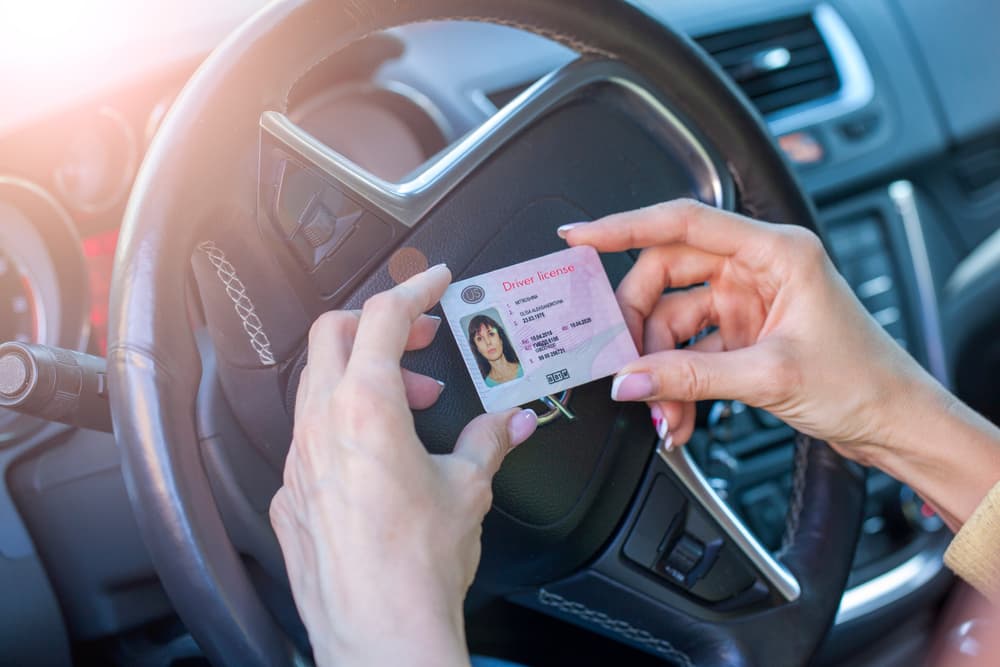Driving under the influence, or DUI, is a serious criminal charge, and you will likely lose your license after a DUI stop. Most states impose an automatic license suspension if police arrest you for a DUI, even before any court conviction.
The length of the suspension varies depending on whether it’s your first offense or a repeat offense. Sometimes, you may qualify for a temporary or restricted license that allows you to drive for specific purposes, such as work or medical appointments.
You need a lawyer who understands your state’s laws regarding DUI and license suspension, as they can significantly affect your driving privileges.
An experienced DUI lawyer can explain every step of the process to you, represent you during various legal proceedings (including your DMV hearing), and pursue the best possible result in your case.
What Are the Legal Elements of a DUI Charge?

To convict someone of DUI, a prosecutor must prove several key legal elements beyond a reasonable doubt.
These elements establish that the accused driver (the defendant) operated a vehicle while impaired by alcohol or drugs.
- Operation of a Vehicle – The first element requires the prosecutor to show that the defendant operated a motor vehicle. The individual must have physically controlled the vehicle, even if they were not driving at that precise moment. This can include sitting in the driver’s seat with the engine running or the key in the ignition or having the vehicle in motion.
- Impairment – The second element involves demonstrating the defendant’s intoxication. Police establish this through field sobriety tests, Breathalyzer results, or blood tests. The prosecutor must prove that alcohol or drugs significantly impaired the defendant’s ability to drive. The defendant’s blood alcohol concentration (BAC), can measure this impairment. South Carolina sets the limit for alcohol at 0.08 percent or greater for adults. However, even lower levels can lead to a conviction if evidence shows impairment.
- Substance Involved – The prosecutor must also identify the substance that caused the impairment. This can include alcohol, illegal drugs, prescription medications, or over-the-counter drugs. Establishing that the substance directly affected the defendant’s ability to operate the vehicle is key.
- Intention to Drive – Although not always explicitly required, proving that the defendant intended to drive can strengthen the prosecution’s case. For example, if police find someone in the driver’s seat with the engine running, it may imply an intention to drive, even if they haven’t yet done so.
- Legality of the Stop – Finally, the prosecutor must ensure that the police officer had legal grounds to stop the vehicle. If police stop you illegally or lack reasonable suspicion, the court may throw out evidence gathered afterward, which can jeopardize the prosecution’s case.
The burden of proof lies with the prosecution, and any reasonable doubt can lead to an acquittal.
Legal and Administrative Penalties for a DUI Conviction
A DUI conviction can lead to serious legal and administrative penalties, significantly affecting a person’s life.
These penalties vary by state but generally include both criminal consequences and administrative actions, such as losing your driver’s license.
- Legal Penalties – If convicted of a DUI, you may face various legal consequences. These typically start with fines, which can range from a few hundred to several thousand dollars, depending on the severity of the offense and whether it is a first or subsequent conviction. Additionally, you may receive probation, which often includes mandatory alcohol education programs or treatment. In some cases, you can also face jail time. First-time offenders may spend a few days to a few months in jail, while repeat offenders may receive significantly longer sentences.
- Administrative Penalties – Alongside legal penalties, DUI convictions often come with administrative penalties that the Department of Motor Vehicles (DMV) or equivalent authority in your state imposes. One of the most common consequences is the suspension or revocation of your driver’s license. The length of this suspension can vary widely. For a first offense, it may last from three months to a year. However, subsequent offenses can result in longer revocations, sometimes lasting several years.
- Insurance Consequences – Another important aspect to consider is the effect a DUI conviction has on car insurance. Insurance companies may view a DUI as a significant risk factor, leading to higher premiums or even denial of coverage.
Getting Your License Back after a DUI Stop

After a DUI stop, your driver’s license may be suspended even before your court hearing. To get your license back, you must act quickly.
Most states allow you to request a hearing with the DMV to challenge the suspension. This is separate from your criminal case, and the deadline to request a DMV hearing is usually very short, often within ten days of your arrest.
At the DMV hearing, your DUI lawyer can argue against the suspension by questioning the legality of the stop, the accuracy of the Breathalyzer, or other aspects of the arrest, and, if successful, the DMV may restore your driving privileges while your criminal case proceeds.
If you don’t win the DMV hearing, some states offer restricted or hardship licenses. These allow you to drive for specific purposes like work, school, or medical appointments.
To apply, you may need to prove that losing your license would cause significant hardship. In some cases, you may have to install an ignition interlock device (IID), which tests your breath for alcohol before your car can start.
Working with a lawyer can improve your chances of getting your license back before your DUI hearing, as they know how to navigate the DMV process and present a strong case on your behalf.
A lawyer experienced in DUI cases can help you understand the specific requirements in your state, ensure that you meet all legal obligations, and represent you during hearings related to your license reinstatement.
Additionally, an attorney can advocate on your behalf if there are any complications or disputes regarding your eligibility for reinstatement. Having legal support can significantly ease the burden of navigating the complex world of DUI laws and procedures, increasing your chances of successfully regaining your driver’s license.
Common Legal Defenses to a Criminal DUI Charge
Various legal defenses can challenge the prosecution’s case.
Here are some of the most common legal defenses against a DUI charge:
- Improper Traffic Stop – One of the most common defenses is that the police officer did not have a valid reason to stop the vehicle. A lawful DUI arrest requires reasonable suspicion of a crime. If the defense can show that the officer lacked reasonable suspicion – such as not observing any erratic driving or violation of traffic laws – the court may toss the evidence gathered during the stop. This can lead to a dismissal of the DUI charge.
- Faulty Field Sobriety Tests – Field sobriety tests can determine a driver’s intoxication level. However, medical conditions, fatigue, or even environmental conditions like weather or road surfaces can influence these subjective tests. A strong defense can argue that police failed to administer the tests correctly or that the defendant’s physical or mental state at the time led to misleading results.
- Inaccurate Breathalyzer Results – Breathalyzer devices commonly measure a driver’s BAC. However, these machines can malfunction or provide inaccurate readings if not properly calibrated or maintained. If the defense can demonstrate that the Breathalyzer did not function correctly or that the officer failed to follow proper procedures, you can challenge the results. Furthermore, certain medical conditions, such as diabetes or acid reflux, can affect Breathalyzer results.
- Rising Blood Alcohol Content – Another effective defense involves rising BAC. This defense argues that the defendant’s BAC did not reach the legal limit while driving but rose to an illegal level by the time police administered the test. This can occur if the driver consumed alcohol shortly before police pulled them over. If the defense can establish that the drinking occurred after the vehicle was in motion, it may undermine the prosecution’s case.
- Lack of Intent to Drive – In some cases, defendants may not have intended to drive while impaired. For example, if someone is found in the driver’s seat with the engine running but did not intend to operate the vehicle, the defense can argue that there was no intention to drive under the influence. This argument can work if the defendant was waiting for a sober driver or had pulled over to sleep.
Each DUI case is unique, and the most effective defense will depend on the specific circumstances involved. An experienced attorney can analyze the case and develop a tailored defense strategy to challenge the DUI charge. Understanding these common defenses can empower individuals facing DUI charges to approach their situation with more confidence.
Resolving a Criminal DUI Case With a Favorable Plea Deal or Trial Result

Defendants often face the decision of whether to accept a plea deal or take their case to trial. Both options have advantages and disadvantages, and understanding them can help individuals make informed choices.
Plea Deal
A plea deal, or plea bargain, involves the defendant agreeing to plead guilty to a lesser charge in exchange for a reduced sentence or other concessions. One significant advantage of accepting a plea deal is that it can lead to a more favorable outcome than going to trial.
For example, a defendant may plead guilty to a lesser offense, such as reckless driving, which typically carries less severe penalties than a DUI conviction. This can result in reduced fines, fewer points on the driver’s license, or less time spent in jail.
Additionally, plea deals can save time and money. Trials can be lengthy and expensive due to court fees, attorney fees, and other costs associated with preparing for trial. By resolving the case through a plea deal, defendants can avoid the uncertainty and stress of a trial and move forward with their lives more quickly.
However, one downside of accepting a plea deal is that it usually requires the defendant to admit guilt to some extent, which can have lasting consequences on their record and reputation.
Additionally, not all plea deals favor defendants, so they should carefully consider the terms and consult with an experienced DUI attorney to ensure they are making a well-informed decision.
Going to Trial
On the other hand, taking a DUI case to trial can lead to a complete dismissal of the charges if the defense is successful. A trial allows the defendant to present their case, challenge the prosecution’s evidence, and potentially demonstrate their innocence.
If the jury finds the defendant not guilty, they will not face any penalties related to the DUI charge.
However, the time-consuming and emotionally taxing process of going to trial comes with risks. If the court finds the defendant guilty, they may face more severe penalties than a plea deal offered.
Ultimately, the decision between accepting a plea deal or going to trial depends on the case, the strength of the evidence, and the advice of a qualified DUI attorney. Weighing the potential risks and benefits of each option can help defendants make decisions about their DUI case more effectively.
Contact an Experienced Criminal Defense Lawyer Today
If police pull you over and arrest you for DUI, reach out to an experienced criminal defense attorney right away. Your lawyer can represent you at your DMV hearing and can raise one or more legal defenses to your charge in criminal court. Your Greenville criminal defense attorney can also work with state prosecutors to pursue a favorable plea deal on your behalf, depending on your case circumstances.
